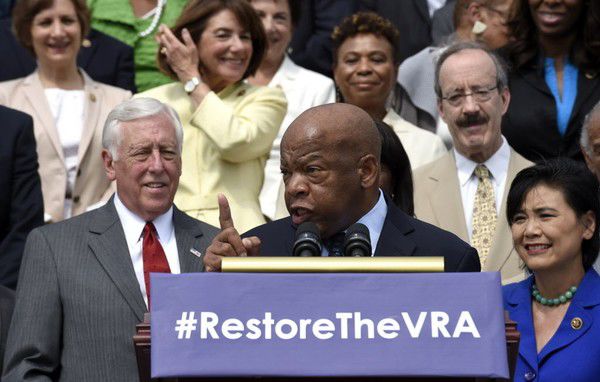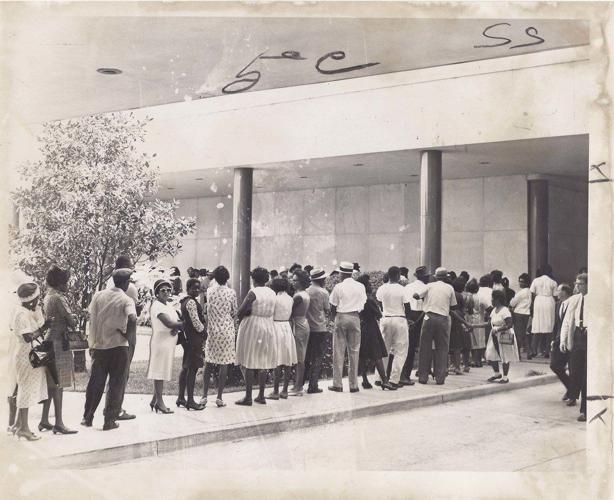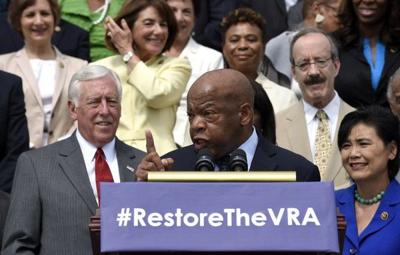Things were looking up for Republicans who feel as though the GOP they've known has been hijacked and as Democrats continue to think about how they can keep the White House in 2024.
Kentucky, Ohio, Pennsylvania and Virginia election results early this month brought big smiles to national Democrats who watched strong abortion rights campaigns notch wins in key states. Kentucky's Democratic Gov. Andy Beshear rode that tide to a second term. Ohio voters gave a double-digit constitutional win to abortion rights, which also factored in a Pennsylvania Supreme Court race. Democrats also gained control over both state legislative chambers in Virginia despite the popularity of that state's Republican (and staunchly anti-abortion) governor, Glenn Youngkin.
Kentucky's turnout average was 39%, six points lower than four years ago. Ohio saw a voter turnout of almost 50%, driven mostly by a right-to-abortion ballot initiative and a marijuana ballot initiative. Virginia's election turnout average was 39%, but a number of legislative elections had turnouts from 40% to more than 50%.
State voter turnout averages below 40% are nothing to cheer about. Louisiana had a statewide voter turnout of just 36% this month.
Why would anyone want to reduce the number of people voting?

People registering to vote stand outside New Orleans City Hall on Aug. 16, 1965. According to a story published the next day in The Times-Picayune, at least 600 prospective voters were in line by midmorning, all of them black. This was shortly after literacy tests were eliminated across the South after the passage of the Voting Rights Act.
Citizens exercising their voting rights should be something that we all agree is a good thing.
But nooooo.
Just last week, right before Thanksgiving, the 8th U.S. Circuit Court of Appeals issued a 2-1 opinion saying only the U.S. Attorney General — and not private groups such as the NAACP Legal Defense Fund or aggrieved citizens — can file lawsuits under a 1965 Voting Rights Act provision commonly referenced as Section 2.
The 8th Circuit's ruling contradicts with virtually every legal and judicial interpretation of the Voting Rights Act. When, not if, this case goes to the U.S. Supreme Court, the outcome could change the basic concept of challenging deliberate and/or illegal government moves to limit voting by Black people.
Unfortunately, our nation has seen many official attempts to deny Black people their voting rights, from poll taxes to literacy tests — and now by an attempt to deny Black citizens directly affected by government restrictions of the right to challenge those restrictions.
The Voting Rights Act has been challenged since President Lyndon B. Johnson signed it into law in August 1965. The next year, in 1966, there was a legal challenge.
In Louisiana, the New Orleans City Council's 1960 district map was drawn in a way that deprived Black citizens of the opportunity to elect a representative of their choice in any of the five council districts. After the 1970 Census, the council drew new maps — and the Voting Rights Act required federal approval.
The new map had one majority-Black district, a few districts with mostly-Black populations and a couple of at-large districts. The federal government had to "preclear" the plan under Section 5 of the law. The "preclearance requirement" was struck down by the Supreme Court in 2013, but the court did not strike down Section 5 itself. Still, that ruling was seen as a serious dilution of the Voting Rights Act.
If this month's 8th Circuit ruling is upheld by the U.S. Supreme Court, it would mean that no individual voter or voting rights organization could challenge such a racially discriminatory districting plan. Only the U.S. Attorney General could do that, which is extremely unlikely in light of the hundreds (if not thousands) of districting maps drawn every 10 years and all that the U.S. Department of Justice has going on. Even an administration that believed in a strong voting rights law would find it difficult to monitor so many maps.
The 8th Circuit ruling is yet another assault on voting rights in this country. All of us should want more of us to actively participate in our democracy. We should want to hear more voices.
We should want to find more ways to make it easier for all people to vote.
The difference between vocalizing support for a cause and demonstrating it at the polls is the difference between losing your rights and keeping them.
We have too few people voting.
If the 8th Circuit's ruling stands, it's quite likely we'll see even fewer people voting in the near future.
















